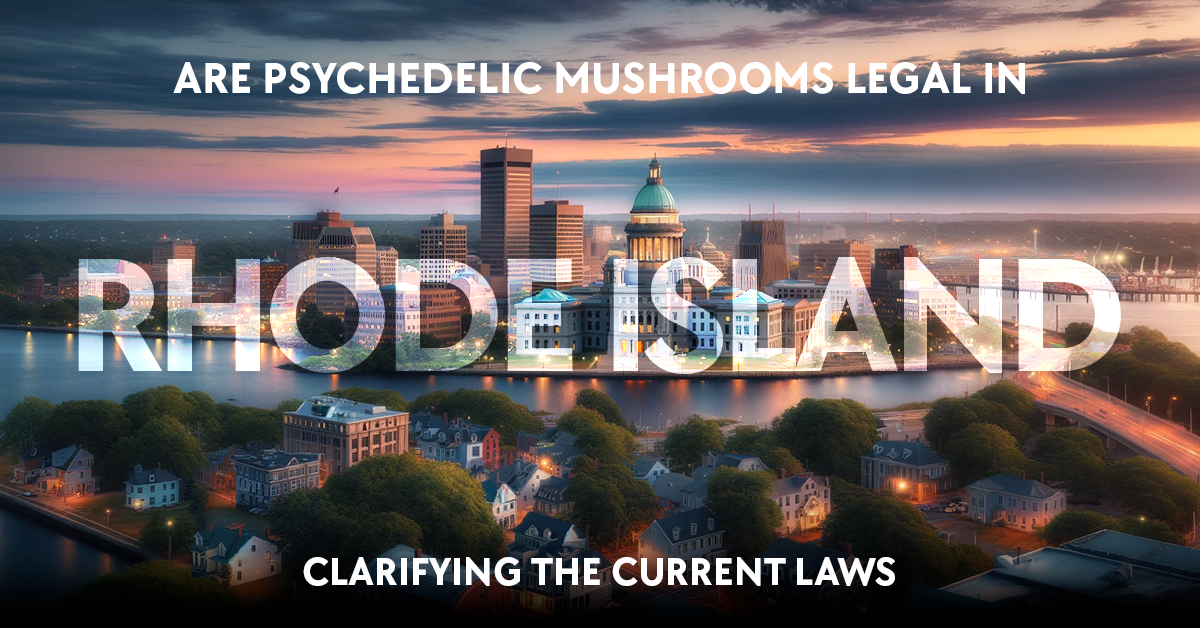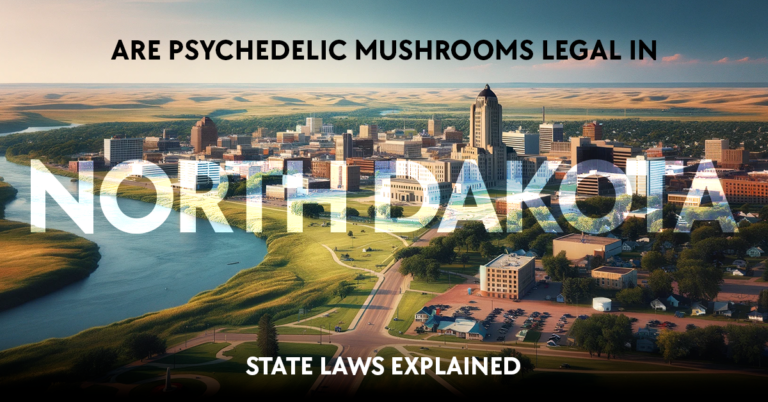In recent years, the conversation around psilocybin, the active compound in psychedelic mushrooms, has gained significant momentum, with a focus on its therapeutic potential and the evolving legal landscape surrounding its use. If you’re curious about the legal status of psychedelic mushrooms in Rhode Island, it’s important to understand that, as of now, they remain classified as a Schedule I controlled substance under both federal and state law. This means that the possession, sale, or cultivation of psychedelic mushrooms is illegal, with penalties ranging from fines to imprisonment.
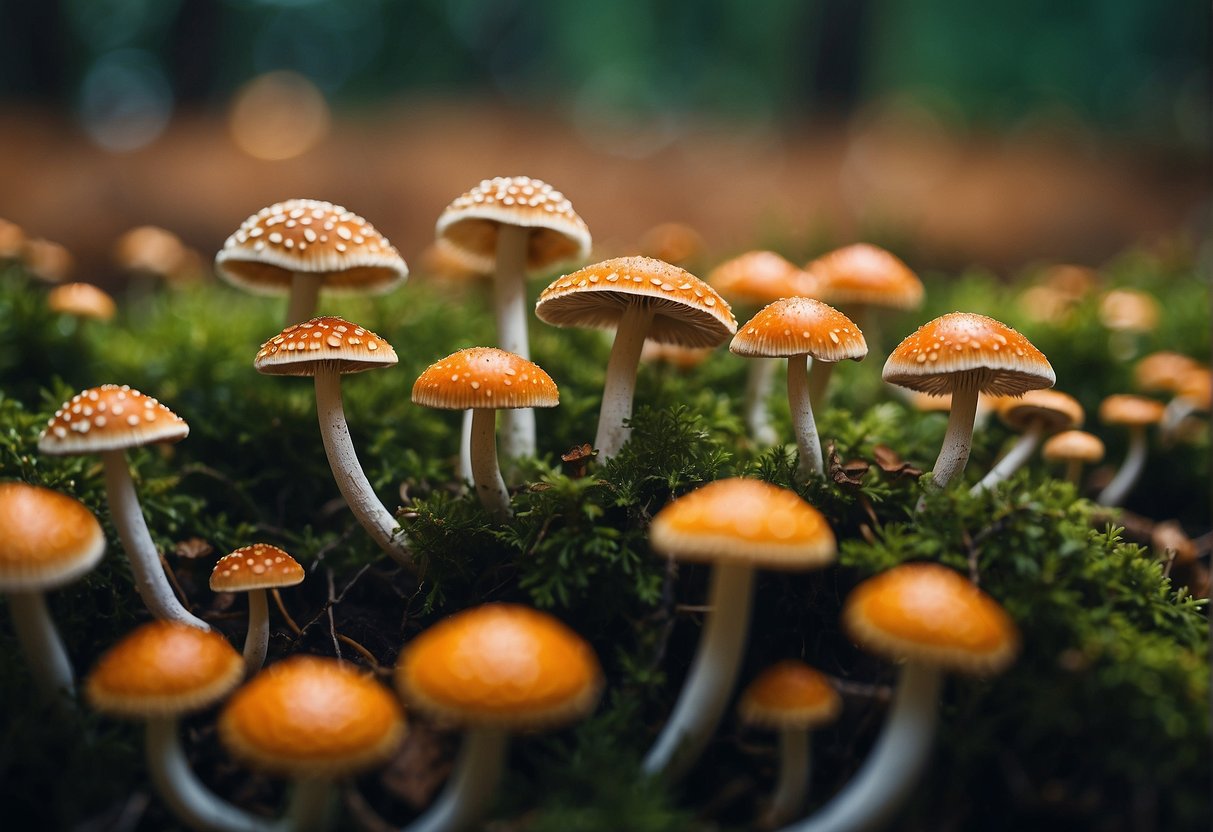
The exploration of psilocybin as a treatment for various mental health issues has prompted a reevaluation of its legal standing in some parts of the United States. However, in Rhode Island, the law has not changed. Psychedelics, including psilocybin mushrooms, are not sanctioned for medical use and carrying them can lead to serious legal consequences. Legislative changes, if any, would come after careful consideration by state authorities. It’s crucial for you to stay informed of the current laws and any future legislative developments that might affect the accessibility and legality of psychedelic substances.
Rhode Island Legal Status
Table of Contents
https://www.youtube.com/watch?v=DHTHSBmEZaY&embed=true
When exploring the legal landscape regarding psychedelic mushrooms in Rhode Island, it’s essential that you’re aware of the current laws and limitations. Psychedelic mushrooms, also known as psilocybin mushrooms, remain illegal in Rhode Island under both state and federal law. They fall under Schedule I controlled substances, which means their possession, sale, or distribution can lead to significant penalties.
Legislation in Rhode Island reflects a conservative stance on psychedelic substances, including psilocybin. There haven’t been recent changes in the state law expressly related to the legalization of psychedelic mushrooms. It is important to note that statutory laws can evolve, so staying informed about any new bills or amendments is recommended.
However, conversations surrounding drug policy reform are ongoing. In the Rhode Island General Assembly, there have been discussions and proposals for new legislation, which you could track for future developments. For instance, House Bill 5923, sponsored by Rep. Brandon Potter, aimed to establish a substance abuse treatment program within the Rhode Island Department of Health. While it doesn’t specifically address psychedelics, it represents a shift towards more progressive drug policies.
Additionally, Sen. Meghan Kallman has introduced bills in the past focused on broader drug reform, which could eventually pave the way for changes in how psychedelic substances are treated legally.
If you’re interested in how laws may change or in advocating for policy reform, monitoring the activities of local legislators like Rep. Brandon Potter and Sen. Meghan Kallman can provide insights into future legal considerations for psychedelic mushrooms in Rhode Island. Always refer to the Rhode Island Department of Health for the most current information on health and legal regulations.
Federal and State Perspectives
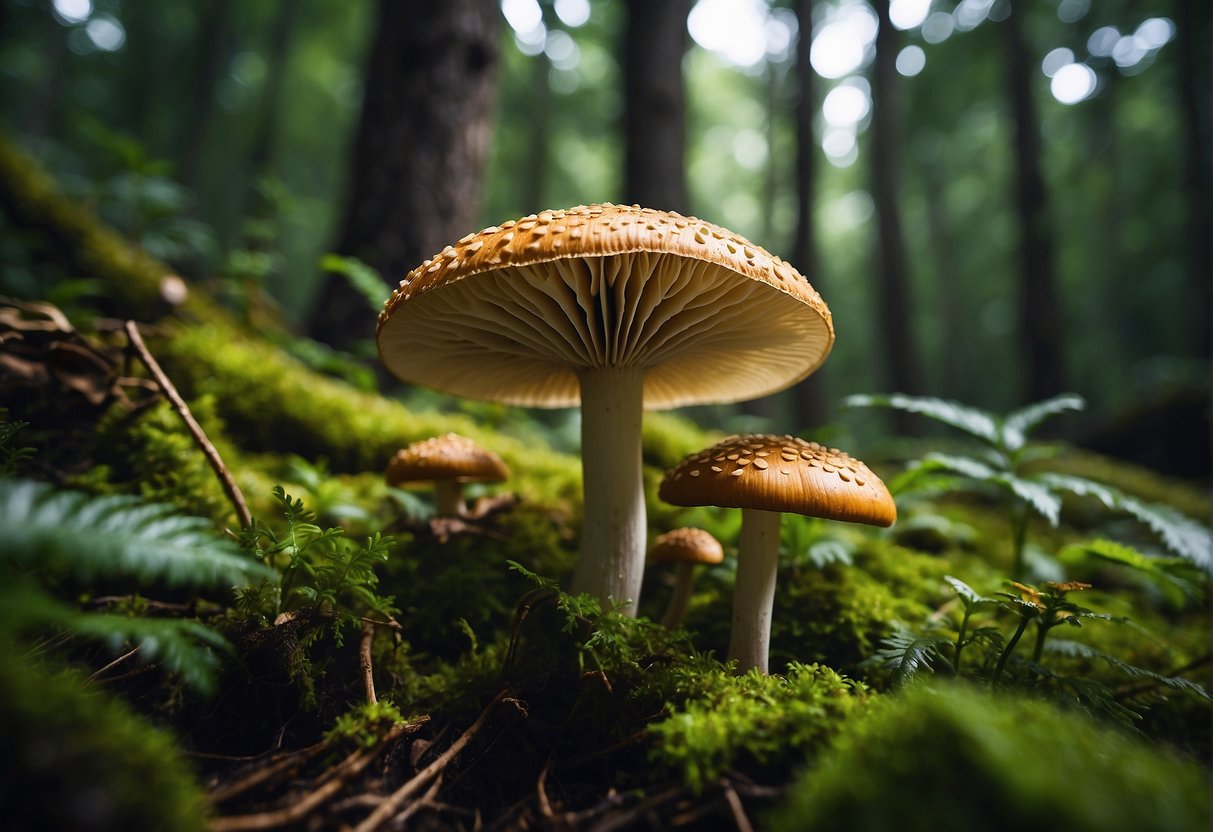
Your understanding of the legality of psychedelic mushrooms must take into account both federal regulations and individual state decisions, which can vary significantly. Here’s how current laws apply at both levels.
Federal Classification
At the federal level, psilocybin, the active compound in psychedelic mushrooms, is classified as a Schedule I controlled substance. This means it’s regarded alongside drugs like heroin, LSD, and methamphetamine, which are considered to have a high potential for abuse and no accepted medical use. Unlike cannabis, which some states have legalized despite its federal classification, psilocybin remains largely prohibited.
State Comparative Analysis
On the state level, you’ll find significant differences:
- Oregon: They have pioneered decriminalizing psilocybin, even setting the stage for a regulated therapeutic model.
- Colorado: Similar to Oregon, Colorado has shifted towards decriminalizing the use of psilocybin mushrooms.
- New Jersey and New York: These states are more conservative in their approach, with ongoing discussions about medical research and potential therapeutic benefits, but no decriminalization yet.
- Vermont and Arizona: While they haven’t decriminalized psilocybin, shifts in political discussions indicate a growing openness to revising their stances.
Each state differs in its interpretation and application of the law when it comes to psilocybin and other psychedelics, often with varying degrees of enforcement and penalization.
Medical Research and Psychedelic Therapy
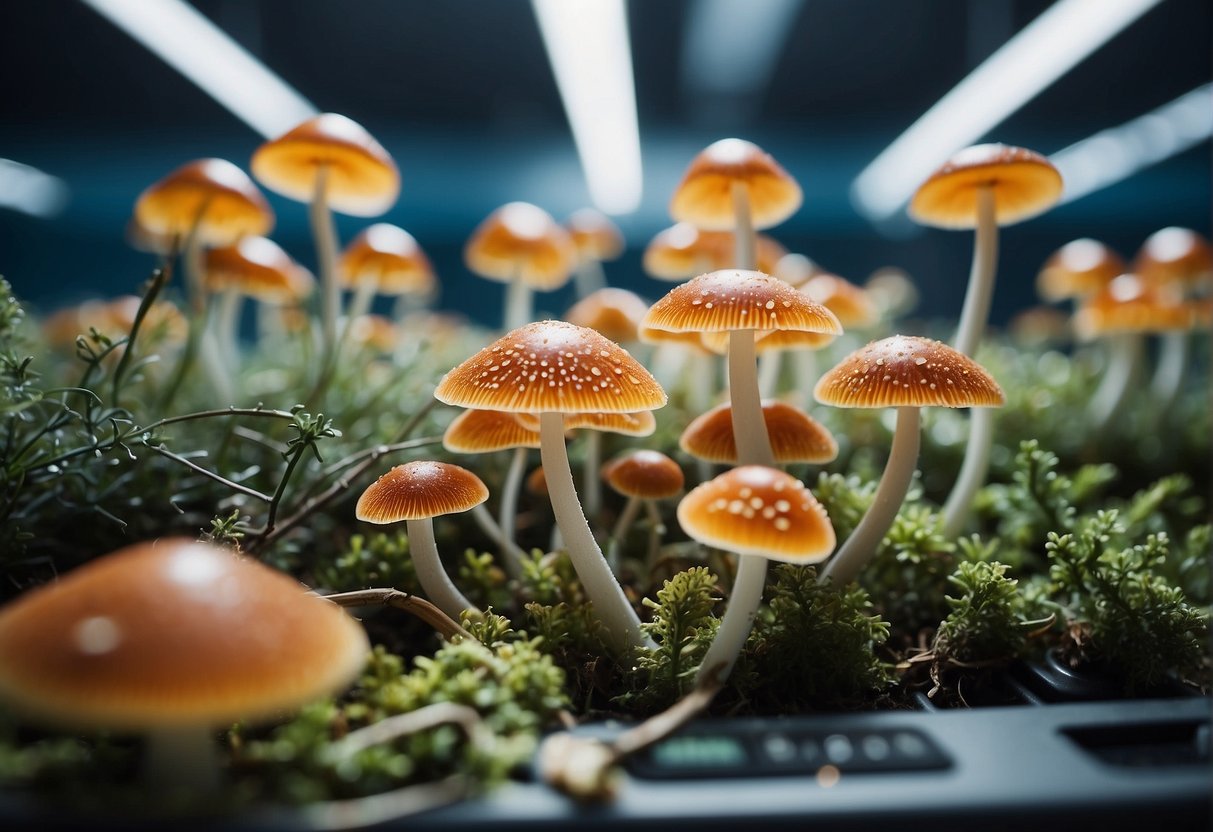
Recent advancements in medical research have unveiled promising therapeutic applications of psychedelic mushrooms for treating various mental health disorders. Dedicated studies are exploring how, under controlled conditions, these substances could benefit individuals with conditions like depression and PTSD.
FDA Stance and Research
The U.S. Food and Drug Administration (FDA) has identified certain psychedelic compounds as potential breakthrough therapies, a designation accelerating research for their application in mental health treatment. For instance, psilocybin, the active compound in “magic mushrooms”, has garnered FDA attention for its therapeutic value in treating depression and other chronic mental health disorders. Controlled clinical trials are vital for gaining FDA approval, as they ensure the safety and efficacy of these substances for legitimate medical uses.
Therapeutic Applications
Psychedelics are being tested in psychotherapy treatments, often termed psychedelic-assisted psychotherapy, for their potential to treat addiction, chronic PTSD, and the existential anxiety associated with terminal illness. With burgeoning research supporting psilocybin’s effectiveness, therapies incorporating psychedelics are emerging as potential treatments for a range of conditions not adequately addressed by current medications. These therapies work by potentially altering the patient’s perspective, fostering significant insights and emotional release which are therapeutically beneficial.
Decriminalization and Social Movements
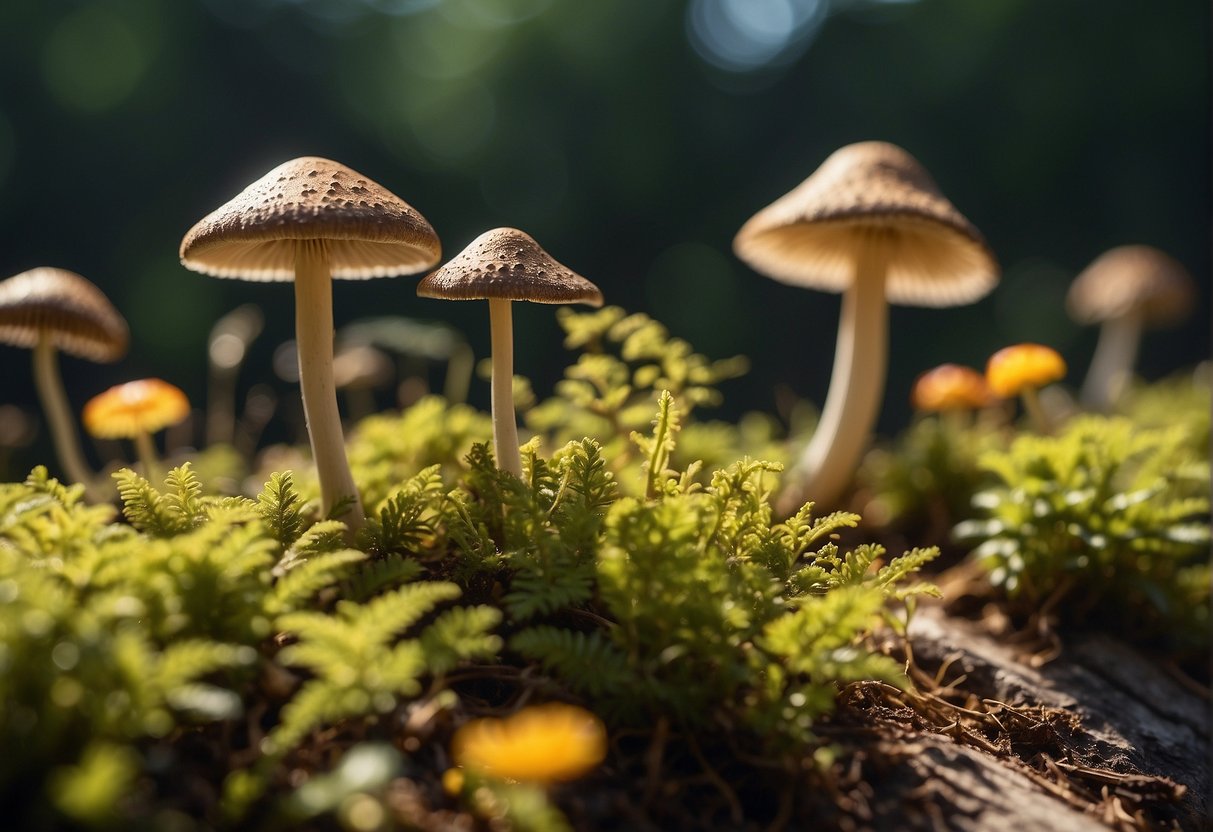
Your understanding of the Rhode Island landscape regarding psychedelic mushrooms must begin with recent social and legislative efforts aimed at decriminalization. Activists and some lawmakers are working to reclassify psilocybin, the active compound in these substances, to enable personal use without harsh legal repercussions.
Advocacy and Recent Efforts
Activists in Rhode Island have rallied behind the notion that decriminalizing psilocybin mushrooms for personal use is a step toward better public health policy and criminal justice reform. Efforts have led to proposals within the state legislature, indicating a potential shift in perspective from punitive to a more health-oriented approach when it comes to psychedelics. Rhode Island lawmakers have been presented with these proposals, reflective of a broader movement in some U.S. states to relax the legal restrictions on these substances.
For example, legislation has been introduced in an attempt to decriminalize psilocybin mushrooms, following the trend in multiple jurisdictions that have either decriminalized or deprioritized the enforcement of laws regarding the personal, recreational use of such psychedelics. These efforts reflect a growing acknowledgment of the potential therapeutic benefits of psilocybin and a critique of the ongoing criminalization of drug use.
Future of Legislation
Looking forward, the movement toward decriminalization in Rhode Island faces a challenging environment with political opponents voicing concerns over public safety and addiction. However, proponents remain confident as more data emerges suggesting that carefully regulated personal use may offer mental health benefits with low risk. Legislative progress will heavily depend on the Senate’s response to the mobilization of these social movements and the shifts in public opinion regarding the legalization of psychedelics. The future of legislation in Rhode Island is thus in a state of flux, resting on a fulcrum of societal attitudes, political will, and continued advocacy.
Cultural and Historical Context
Psychedelic substances, including hallucinogens like magic mushrooms, have been intertwined with human culture for thousands of years. Your understanding of the current legal status of these substances in Rhode Island is deepened by exploring their historical significance. For instance, natural species of psychedelic mushrooms were highly regarded in various indigenous traditions for their spiritual and medicinal properties.
In the United States, these substances became prominent during the cultural shifts of the 1960s, where magic mushrooms were part of a wider counterculture movement. However, this period also saw the initiation of the War on Drugs under President Nixon. This campaign brought about stringent drug policies, significantly impacting the legal landscape for psychedelics across the nation, including in Rhode Island.
Despite a rich historical tapestry and natural fungal biodiversity, the possession, sale, and cultivation of psilocybin—the psychoactive compound in magic mushrooms—remain illegal under Rhode Island law. This status is rooted in legislation from the early 1970s when substances like psilocybin were classified as Schedule I drugs, deemed to have a high potential for abuse and no accepted medical use.
Your awareness of this context is crucial. It is a legal reflection not just of the substances themselves, but of broader societal attitudes towards psychedelic mushrooms. While laws evolve, with some places reconsidering their stance, in Rhode Island, these historical events still shape the present legal framework, maintaining the illegality of these naturally occurring fungi.
Health and Safety Considerations
When considering the use of psychedelic mushrooms, it’s important to weigh both the potential health risks and safety measures. These substances, known for their psychoactive effects, can affect you differently based on various factors, including dosage and individual sensitivity.
Psychoactive Effects:
- Euphoria: You might experience intense feelings of happiness and well-being.
- Sensory Distortion: Visual and auditory perceptions could be altered.
- Time Distortion: Your perception of time may slow down or speed up.
Health Risks:
- Physical: Nausea, dizziness, and headaches are common physical side-effects.
- Psychological: You may encounter anxiety or panic, especially if you’re in an uncomfortable setting.
- Pre-existing Conditions: If you have a history of mental health issues, psychedelic mushrooms could potentially exacerbate those conditions.
Safety:
- Set and Setting: Ensure you’re in a comfortable and safe environment before considering use.
- Cultivation: Be aware that natural growth does not guarantee safety; misidentified mushrooms can be toxic.
Legal Status:
Psychedelic mushrooms’ legality varies by location. As of my last update, consider reviewing current Rhode Island legislation as this affects the legality of cultivation and possession.
Remember, while natural, these substances are powerful, and their use could have serious implications for your health and legal standing. Always ensure you stay informed and make decisions that prioritize your well-being.
Regulation of Usage and Possession
In Rhode Island, the legal landscape regarding psychedelic mushrooms, also known as psilocybin mushrooms, is complex and subject to change. As you explore the current regulations, it’s important to understand how these laws compare to those pertaining to marijuana, as the two substances have faced different paths towards decriminalization and potential legalization.
Recreational Use: Recreational use of psychedelic mushrooms in Rhode Island is illegal. Psilocybin is classified as a Schedule I controlled substance under state law, aligning with federal categorization which indicates a high potential for abuse and no accepted medical use.
Medicinal Use: Unlike marijuana, which has been sanctioned for medicinal purposes in Rhode Island, psychedelic mushrooms currently have no legal recognition for such use. Scientific research into potential therapeutic benefits is ongoing, but has yet to influence state legislation.
Personal Possession: Possession of psychedelic mushrooms, even in small amounts for personal use, is unlawful and can lead to criminal penalties. Sanctions might involve fines, imprisonment, or both, depending upon the quantity and the intent implied by possession (such as personal use versus intent to distribute).
Decriminalization Efforts: Movements toward decriminalization have been gaining momentum in some regions of the United States, but as of now, Rhode Island has not enacted any laws to decriminalize psychedelic mushrooms. This contrasts with movements for marijuana, which has been decriminalized in Rhode Island to reduce penalties for small-scale possession.
Legal Status: Currently, there is no legislative framework in Rhode Island that permits the legal use, possession, sale, or cultivation of psychedelic mushrooms, unlike the state-specific regulations that have normalized various forms of marijuana usage.
As a resident or visitor in Rhode Island, it’s crucial to stay informed about the laws pertaining to controlled substances, including psychedelic mushrooms and marijuana, as these regulations can have significant legal implications.
Impact on Specific Populations
Your understanding of psychedelic mushrooms’ legality in Rhode Island may be influenced by the impact these substances can have on specific populations, particularly regarding mental health improvement and their use in veterans with PTSD. Legislation tends to evolve when potential therapeutic benefits emerge.
Mental Health Improvement
Psychedelic mushrooms have been studied for their possible benefits in treating a range of mental health disorders. Psychedelic therapy using components like psilocybin could aid in alleviating symptoms of depression, anxiety, and other severe conditions. This therapeutic approach may offer a new horizon for individuals who have not responded to traditional therapies.
Veterans and PTSD
Veterans are a group significantly impacted by PTSD and related addiction issues. Research on psychedelics like psilocybin suggests potential in reducing the severity of post-traumatic stress disorder symptoms. Psychedelic-assisted therapy represents a promising treatment avenue, with some advocating for legal access to such treatments for veterans.
Non-Medical Use and Personal Cultivation
In Rhode Island, the legality of psychedelic mushrooms, often referred to as magic mushrooms, pivots on their classification for non-medical uses. Understanding the state’s stance on the recreational handling of these substances is crucial.
Personal Use and Cultivation Laws
Psychedelic mushrooms, including ones like psilocybin mushrooms, remain illegal for recreational use in Rhode Island. This means that both personal use and the cultivation or growth of these substances for non-medical purposes is prohibited under state law. You’re not permitted to cultivate or harvest magic mushrooms in any quantity for personal or recreational use.
Despite growing interest in the potential benefits of psychedelics for medical use, the current legal framework does not distinguish between quantities for personal use, and possession can lead to significant legal consequences. Engaging in the cultivation or use of psychedelic mushrooms without proper authorization puts you at risk of both state and federal legal penalties.
Potential Paths for Rhode Island
In the context of psychedelic mushrooms’ legality, Rhode Island has yet to forge a definitive path. As someone interested in this issue, it’s essential to understand the legislative process and the role of the Rhode Island Department of Health (RIDOH).
Currently, possession and use of psychedelic mushrooms, which contain psilocybin, remain illegal under Rhode Island state law. However, there is a growing interest in evaluating the therapeutic potential of these substances, which could influence future legislation.
You should be aware that changes in drug policy typically follow a specific trajectory:
-
Scientific Research: Investigating the medicinal benefits of psilocybin could prompt the RIDOH to consider reevaluating regulations surrounding psychedelic mushrooms.
-
Public Support: Grassroots movements and public opinion often play a significant role in shaping policy. Should public support for decriminalization grow, it could notably impact the state’s approach.
-
Legislative Action: For a legal shift, the Rhode Island Senate would need to propose, debate, and pass new legislation. This could be a bill directly related to psychedelic mushrooms or a broader drug policy reform.
-
Regulatory Framework: With new legislation, the RIDOH would be tasked with developing a regulatory framework to safely integrate psychedelic mushrooms into medical practice or decriminalize their use.
While no specific pathway has been charted by Rhode Island yet, observing changes and progress in other regions can provide insights into what potential paths may eventually open. If you follow the developments in states like Oregon or cities like Denver, where steps toward decriminalization and medical research have been made, you’ll gain a better understanding of how Rhode Island might navigate this complex issue.
Remember, the journey toward any legal change is often iterative and requires the engagement of various stakeholders, from medical professionals and researchers to legislators and the public.
Frequently Asked Questions
When it comes to the legality of psilocybin mushrooms in Rhode Island, there are specific regulations you should be aware of. The information provided here addresses your most pressing questions based on the current legal framework.
What is the legal status of psilocybin mushrooms in Rhode Island?
Psilocybin mushrooms are classified as Schedule I substances under Rhode Island law, meaning that they are currently illegal to possess, use, or distribute.
Has there been any recent changes to the legislation concerning psychedelic mushrooms in Rhode Island?
There have been no recent legislative changes that affect the legal status of psychedelic mushrooms in Rhode Island.
Can one possess or use psychedelic mushrooms for medical purposes in Rhode Island?
Rhode Island does not allow the medicinal use of psychedelic mushrooms, as they are not recognized for medical use under current state laws.
Are there any ongoing legislative efforts to decriminalize or legalize psychedelic mushrooms in Rhode Island?
To date, no successful efforts have been made to decriminalize or legalize psychedelic mushrooms in Rhode Island; however, the legal landscape is subject to change as discussions continue.
What are the penalties for possession or distribution of psilocybin mushrooms in Rhode Island?
Penalties for possession or distribution range from fines to imprisonment, depending on the quantity and intent, reflecting the state’s position on controlled substances.
Does Rhode Island allow for the use of psychedelic mushrooms in research or therapeutic settings?
Rhode Island law currently does not provide provisions for the use of psychedelic mushrooms in research or therapeutic settings.

